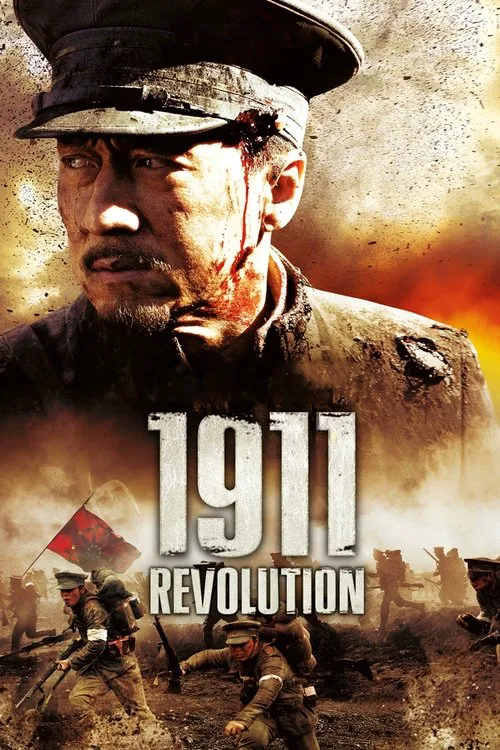1911

Plot
The film 1911, directed by Jackie Chan, tells the epic story of China's modern founding. The movie is set during the late Qing Dynasty, a period where China is plagued by corruption and oppression, and the once-great empire is on the brink of collapse. The story begins with the protagonist, Huang Xing, a skilled military commander who returns to his hometown of Nanjing, in eastern China, after years of studying abroad. Huang Xing is deeply moved by the suffering and injustice he sees around him, particularly the treatment of his fellow citizens under the oppressive rule of the Qing government. He begins to organize a secret revolutionary society, determined to bring about change and overthrow the Qing Dynasty. Meanwhile, another key figure in the revolution is Dr. Sun Yat-Sen, who is living in exile in the United States. Sun Yat-Sen has dedicated his life to the overthrow of the Qing Dynasty and the establishment of a new, republican China. He is a brilliant strategist and orator, and his message of equality, justice, and democracy resonates with many ordinary Chinese citizens. Sun Yat-Sen's revolutionary ideas begin to spread, and he receives the support of a small group of influential Chinese intellectuals and military leaders. Huang Xing is one of the first individuals to recognize the importance of Sun Yat-Sen's ideas and joins his cause. Together, Sun Yat-Sen and Huang Xing form a secret alliance, planning carefully for the revolution. They identify key targets, including the Imperial Palace in Peking and the Qing government's military strongholds. The revolutionary pair faces significant obstacles, including treacherous rivalries and personal betrayals within their own ranks. The revolutionary forces gain momentum, and Huang Xing begins to recruit more followers, including some of the most skilled and loyal soldiers in China. The stage is set for the pivotal battle at Wuchang, a small city in central China where the revolutionary forces plan to launch a surprise attack against the Qing government's troops. The film's climax captures the intense and thrilling moments leading up to the battle, as the revolutionary forces face off against the Qing government's army. The battle is fierce and chaotic, with both sides suffering heavy losses. Huang Xing, Sun Yat-Sen, and their loyal followers fight bravely, using every ounce of skill and strategy to gain the upper hand. Despite being outnumbered and outgunned, the revolutionary forces emerge victorious, and the Qing Dynasty's rule is dealt a fatal blow. The victory at Wuchang marks a turning point in Chinese history, as the revolutionary forces gain momentum and the seeds of republicanism begin to take root. The film's final scene shows Dr. Sun Yat-Sen, his face etched with exhaustion and emotion, speaking to a rapt crowd in Canton, urging them to continue the fight for freedom and democracy. Jackie Chan's portrayal of Sun Yat-Sen brings depth and nuance to the role, capturing the complexities and challenges of his character. As the film concludes, the audience is left with a sense of hope and optimism, knowing that a new chapter in Chinese history has begun. The revolution has opened the door to a brighter future, but it also brings new challenges and uncertainties. 1911 paints a vivid picture of a pivotal moment in history, using stunning action sequences and compelling character development to bring the story to life.
Reviews




